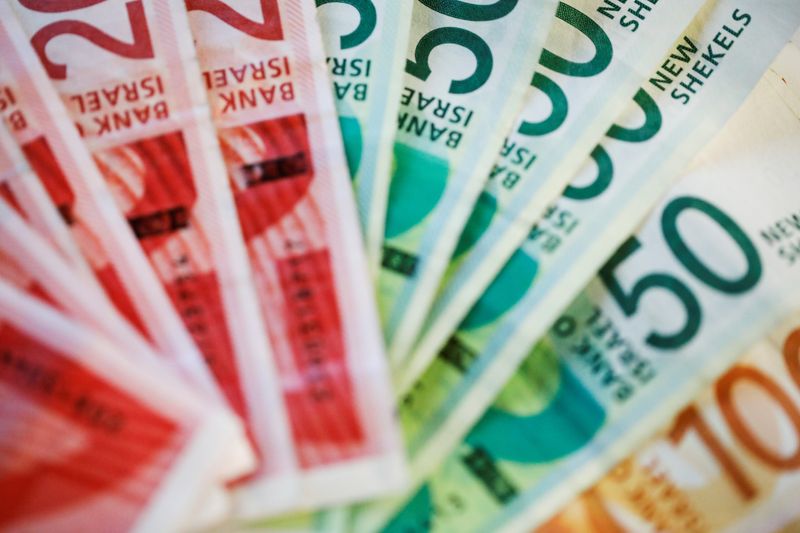By Steven Scheer
JERUSALEM (Reuters) -Israel's aggressive interest rate hiking cycle aimed at lowering inflation was at a "well advanced" stage, Bank of Israel Governor Amir Yaron said, with price pressures starting to ease and inflation hopefully moving back into its target range next year.
Israel will likely avoid a recession, Yaron said, and growth will be stronger than the United States and Europe. Analysts increasingly think the euro zone economy will contract this winter.
The central bank has raised its benchmark interest rate five times since April to a decade high of 2.75% from 0.1% -- the last two moves in late August and this past Monday being 75 basis points.
After hitting a 14-year high of 5.2% in July, Israel's inflation rate eased to 4.6% in August but remained well above an official annual target of 1% to 3% and almost half the levels of the United States and in Europe.
The rate "is in the range that is basically restrictive and it probably will need to go above three percent, or what I call three plus, in order to get inflation back towards the center of the target," Yaron said in an interview with Reuters.
Bank of Israel economists forecast 4.6% inflation in 2022 and moving to 2.5% in 2023. Yaron said most of the reduction will be in the second half of the second quarter and into the summer. "It takes a while for these things to take effect but we believe this is the right magnitude (of rates) for the Israeli economy right now," he said.
The central bank's economists project the key rate reaching 3.5% in a year's time.
Yaron said that while "front-loading" interest rate rises is "painful" to mortgage holders and others it will avoid greater pain down the road, adding: "It will actually help avoid the need for higher interest rates."
DEMAND INFLATION
Where the interest rate stops rising depends on a host of factors, including Israeli and global inflation, economic growth and real interest rates, he said. Yaron said he seeks positive interest rates across the bond yield curve but at the moment, shorter-term rates adjusted for inflation remain negative.
"That's why we believe you have to see three plus ... How events unfold will determine to fast or how slow or how high we might go from here," he said, noting not all inflation was due to external factors.
Once rates peak, they likely will stay there as long as policymakers feel inflation is anchored to its target as well as other economic factors, Yaron said.
While Israel's economy is forecast to expand 6% in 2022 after topping 8% last year, growth is forecast to slow to 3% in 2023 mostly due to outside forces.

"For almost every unemployed (person) there is a vacancy so it gives us comfort in doing this (policy) front loading," he said, noting public sector wages probably will rise after the Nov. 1 election. "Israel's economy has very high growth and a very tight labour market.
"What we are seeing is inflation is seeping into a wider and wider set of CPI components ... more and more to demand side components."